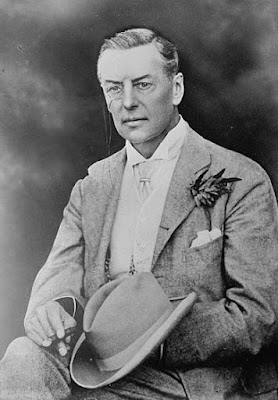PMW: PMW report spurs Denmark to cut funding to PA NGOs
On May 26, 2017 PMW reported that funds provided by Norway, the UN and a conglomerate of countries including Denmark, the Netherlands, Sweden and Switzerland had been used to build a center for young women that was subsequently named after terrorist murderer Dalal Mughrabi. Mughrabi led a terror attack that resulted in the murder of 37 Israelis, including 12 children, in 1978.Douglas Murray: UK: Going about Our "Normal" Lives?
Denmark
Last week, Denmark decided to cancel some grants and review further funding of Palestinian NGOs. The decision was made following an investigation initiated after PMW's report that the women’s center funded by Denmark, was named after a Palestinian terrorist murderer. Denmark announced that it will also tighten the conditions for providing funding to all Palestinian NGOs and that the majority of the aid, suspended after PMW’s report, will not be paid.
“Denmark will tighten the conditions for providing money to Palestinian NGOs, Foreign Minister Anders Samuelsen said... The review followed revelations [by Palestinian Media Watch] in May that a women’s center partly funded with European aid money... was named after Dalal Mughrabi, who took part in the Coastal Road massacre in 1978 that killed 37 people... Samuelsen also said that the 'majority of aid' suspended from the summer while the review was under way will not be paid.” [The Jerusalem Post, Dec. 24, 2017]
Norway
When PMW released its report documenting the center named for terrorist Mughrabi, Norway immediately demanded that the Norwegian money be returned:
Norwegian Foreign Minister Børge Brende:
"The glorification of terrorist attacks is completely unacceptable, and I deplore this decision in the strongest possible terms. Norway will not allow itself to be associated with institutions that take the names of terrorists in this way... We have asked for the logo of the Norwegian representation office to be removed from the building immediately, and for the funding that has been allocated to the centre to be repaid." [Norwegian Foreign Ministry website, May 26, 2017]
Belgium
When PMW reported that a Palestinian school built with Belgium funds, was also named after terrorist murderer Dalal Mughrabi, Belgium condemned it and froze the construction of ten additional Palestinian Authority schools.
Belgian Foreign Ministry spokesman, Didier Vanderhasselt:
“Belgium unequivocally condemns the glorification of terrorist attacks [and] will not allow itself to be associated with the names of terrorists... Belgium has immediately raised this issue with the Palestinian Authority and is awaiting a formal response... In the meantime Belgium will put on hold any projects related to the construction or equipment of Palestinian schools.” [The Algemeiner, Oct. 7, 2017]
But the more this conspicuous, self-conscious egging-on of such attitudes is stressed, the thinner it seems to get. In March, after Khalid Masood ploughed a car across Westminster Bridge, mowing down locals and tourists, and crashed the car and stabbed policeman Keith Palmer to death inside the gates of the Palace of Westminster, one prominent British journalist took to the pages of the New York Times to pour out the clichés.Douglas Murray Takes Us Inside The Strange Death Of Europe
"By Thursday morning, London was, if not quite back to normal, then certainly back in business. As I traveled through the south of the city, up to Chelsea and later over to King's Cross, Londoners really were going about their lives as on any other day.
"This behavior reflects something deeper than conscious defiance, I think. It would simply not occur to the 8.6 million citizens of this megalopolis to allow one man to send them into hiding. As they say in the East End, you're having a laugh, aren't you?"
One wonders when the author last went into an East End pub to have a pint, and whether he honestly believes such honest cockneys still reside there? Nevertheless, he went to boast of the "stoicism" and "ancestral pride" that still exists there and to insist that, "The only way to proceed is -- in the much-loved British slogan -- to keep calm and carry on." Quite why this spirit is meant to reside in the bones of a city in which most of its current residents (according to the last census) have arrived in the decades since the Second World War is never clear.
Similar clichés spilled out after the suicide bombing at the Manchester Arena in May. They came out yet again after the London Bridge attack in June. Yet one of the most striking images from that night was of drinkers in Borough Market, where the terrorists finished their assault, being marched out of the Market under police escort with their hands on their heads. The British public at that point, at any rate, looked not like stoical, pugnacious heroes, but like a defeated army being marched into captivity. Still the clichés continued. The day after the attack, in her address to the nation, Prime Minister Theresa May assured the public that "Our response must be as it has always been when we have been confronted by violence. We must come together, we must pull together."
One of the most striking images from the June 3, 2017 Borough Market terror attack was of drinkers being marched out of the Market under police escort with their hands on their heads. The British public at that point looked not like stoical, pugnacious heroes, but like a defeated army being marched into captivity. (Photo by Dan Kitwood/Getty Images)
So it is interesting to consider, beneath all the talk of business as usual, and Blitz spirit, and keeping calm and carrying on, what, in fact, are the British public actually feeling? Last month provided a sobering demonstration.
Douglas Murray: I'm only going to speak for about 15 minutes because I wanted as much time as possible for Q&A, because I sense that there hasn't been much, so far, and because I'm always very excited about hearing other people's views and questions. But let me start by making a few remarks.
The first, by the way, is that I'll talk a little about my recent book. It's always rather difficult to understand another country, let alone another continent, or another culture. There are things you have in common. There are things which seem bizarre, when you look at them from outside, and there are things that look recognizable. There are things that rhyme. There are an enormous number of similarities between where I'm from and where most of you are from, and an enormous number of differences too. I've been in the states a week, spoken at a campus, and was on the West Coast at the beginning of the week, and I had one of those disassociation moments in San Francisco, when I had been in my second day in the city, and I just noticed that absolutely everywhere, there seemed to be posters advertising delivery services for marijuana. And I thought this is interesting because if there's one thing it seems to me that San Francisco doesn't need it's easier access to marijuana. More of it, just so that people who smoke it don't even have to go down the street. But there are lots of similarities between our societies as well, and one of the, I suppose, most gratifying things since the "Strange Death of Europe" came out in June here in the U.S. is the number of people who have come over to me and written to me from America, from Canada, from Australia, and said this book is about us isn't it? And, perhaps I could stop by just saying a little about what it is about, and you'll get some of the resonances.
The "Strange Death of Europe" centers on the 2015 migration crisis, which you all remember was the moment when Angela Merkel massively exacerbated an already existing problem by announcing, unilaterally, that the external and internal borders of Europe were basically dissolved. In a single act, the mass movement of people that had been going on for decades sped up exponentially, so that Germany in a single year took in an additional 2 percent of its population. Sweden took in an additional almost 3 percent of its population. This is all part of a pattern. I say that has been going on for many decades. And, just like those previous decades, what happened after the 2015 crisis was that politicians and the media found excuses to justify something that would have happened anyway. So, for instance, German citizens and others were told that this mass migration, millions of people into Europe, was there would be a net economic gain for their society, that it would enrich their society. Now, actually, all of the studies that I have gone over on this show that, at best, most such migration cannot be called to be any kind of economic gain. A study in Britain showed that over a 15 year period, migrants took out 95 billion more in services than they put in taxation. And, of course they would. If you go to another country, you don't speak the language. You don't have the skills. It's going to be a very long time, before you've put in anything into the welfare system, remotely like the amount that you and your family will have taken out. But, this is one of the arguments that is made.









































